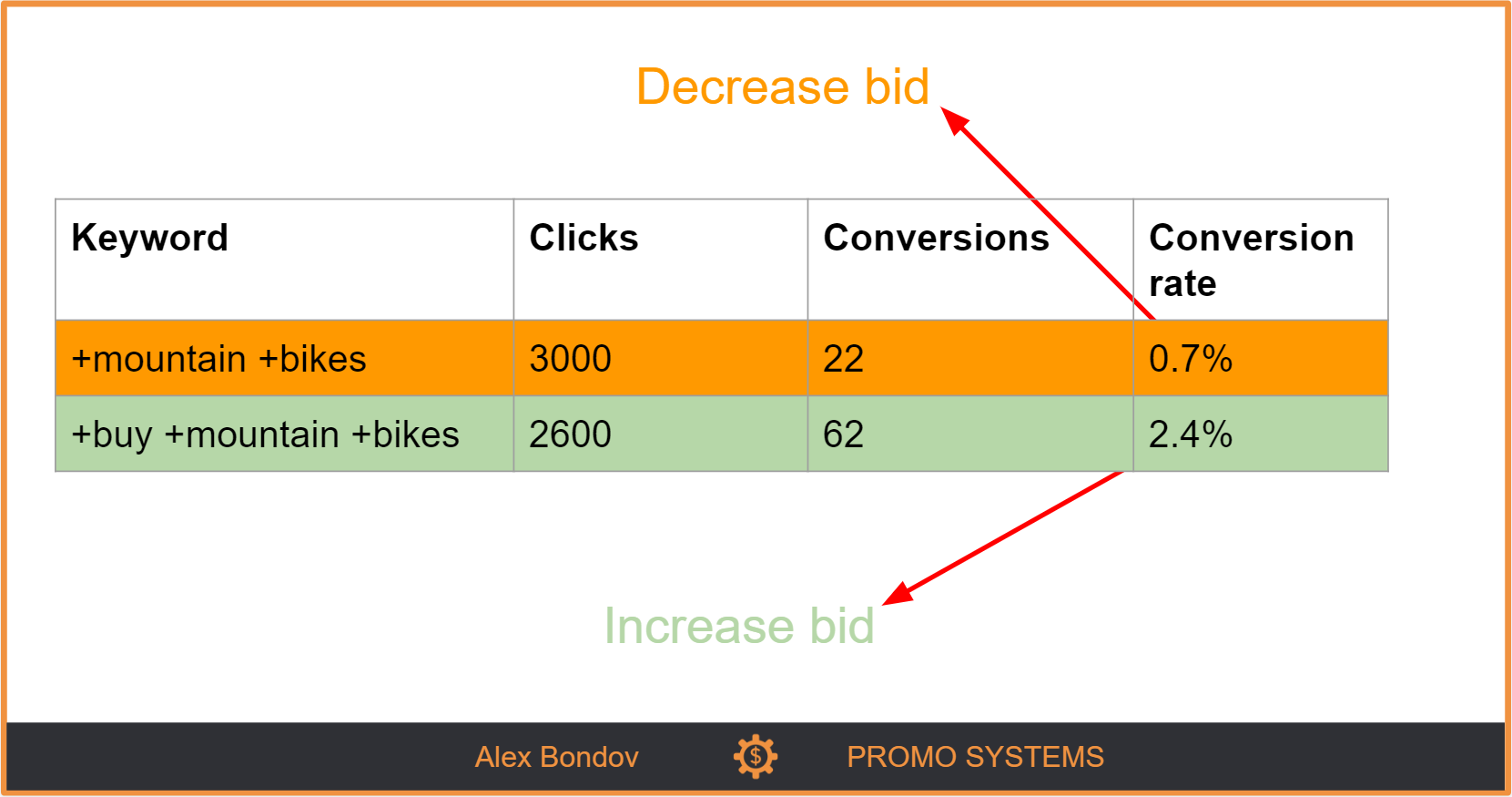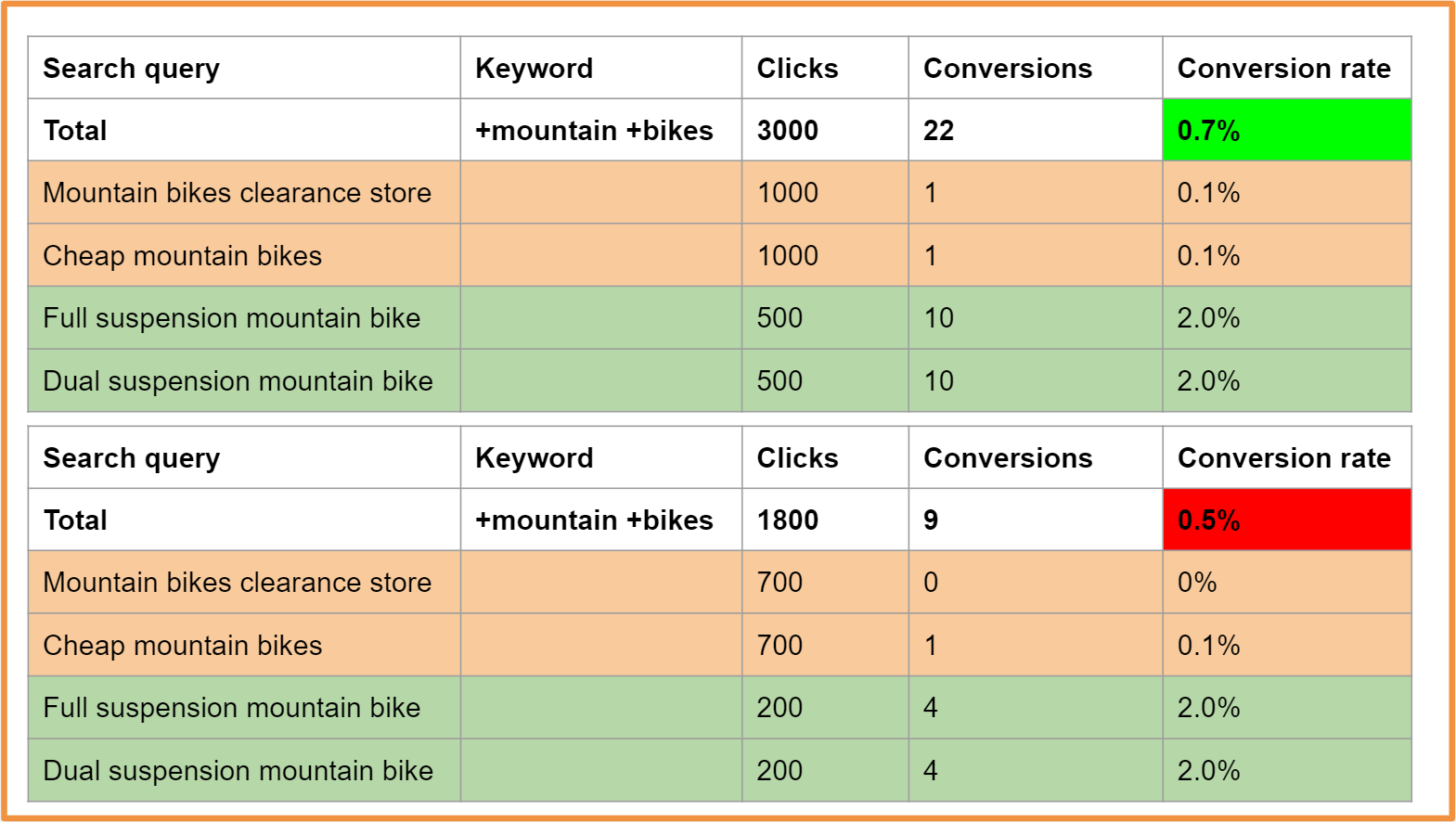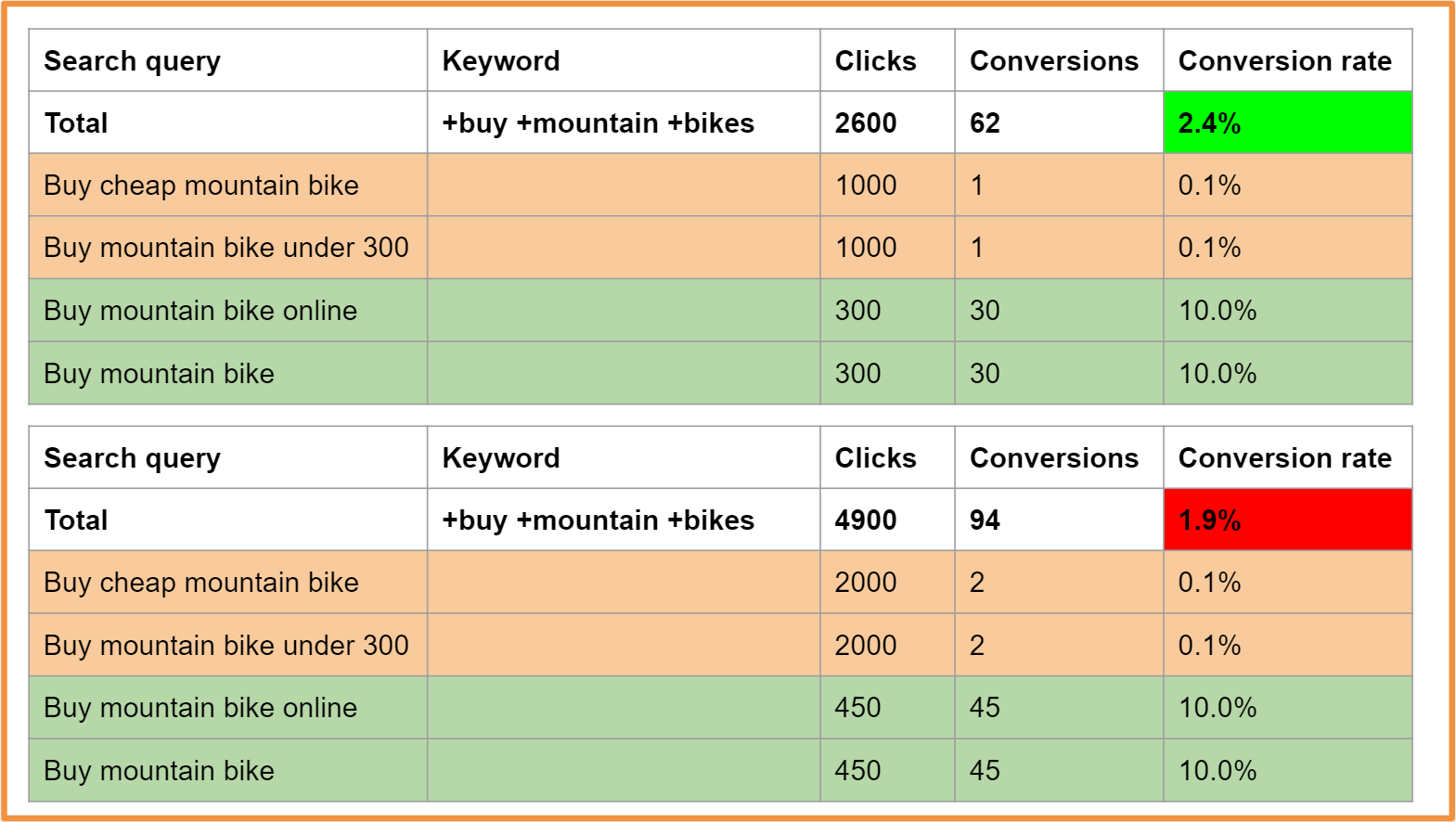Update: keywords on the images are in broad modified match type which was ceased to exist as of 2021. Though, the way phrase match type works after that is the same as it was for broad modified match type. So, just don’t look at those plus signs 🙂 The rest is still relevant.
Results per keyword are misleading even when they are statistically significant.
Let’s look at this example.

The most common response to such results is
- to decrease bid for the first keyword
- and to increase for the second.
Though, most keywords are not exact matches. They are getting clicks and conversions from a variety of related queries. Such stats are averages that obscure what is really happening. When you change the bid for a keyword in a non-exact match, you’re changing the query mix because it becomes eligible for a different set of queries.
The different queries have different CTRs, conversion rates, etc. It’s hard to tell: why a keyword’s performance has changed. Was it a competitor, an optimization you did, or the fact that your query mix changed? Even exact match keywords may see sudden changes in performance. Google may shift their clicks to another similar keyword with a better rank.
A search query report like this uncovers the real reason behind the conversion rate per keyword. Guess what happens next.
Lowering bids for +mountain +bikes keyword will lead to a decrease in the performance even further. It will reduce the volume of high converting queries.

Increasing the bid for +buy +mountain +bike keyword will increase the volume of poor-converting queries more than the volume of high-converting queries. The overall performance of this keyword will drop. Poor-converting queries represent a much bigger portion of its traffic than the high-converting queries.

What to do instead
- Analyze queries‘ stats rather than keywords‘ stats. You need to find consistent patterns and their reason to address performance issues efficiently.
- Master automated bidding where the system changes bids depending on whether a particular search query is likely to convert and at what CPA.
